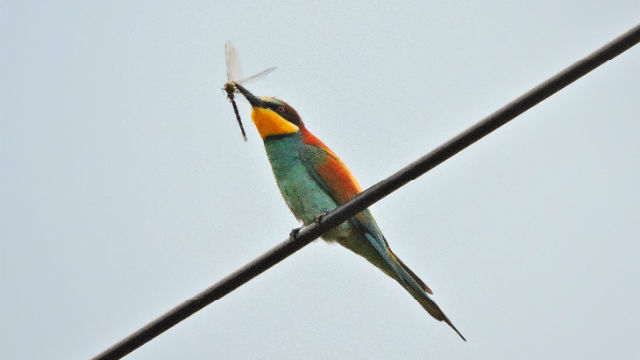Bee-eaters breed in the UK
Conservationalists are celebrating the fact that bee eaters have been found to be breeding in the UK for the first time


A pair of bee-eaters in the Isle of Wight have become only the third record of this beautiful European bird to breed successfully in the UK in the last century.
Having set up home on National Trust land at Wydcombe Estate, the bee-eaters were discovered on the island in mid-July.
The last recorded breeding of bee-eaters in the UK was in 2002 when a pair nested in Country Durham.
National Trust Isle of Wight Ranger, Ian Ridett, says, 'we have set up a 24-hour surveillance operation around the site to protect these rare visitors, as any unhatched eggs could be a potential target for egg thieves.
'We have had incredible support from the RSPB, Isle of Wight Ornithological Group and our volunteers and staff, some of whom have travelled from the mainland to help.
'The hot temperatures since spring have helped an above average arrival of bee-eaters.
'With rising temperatures, the varied landscape and bountiful supply of insects on the Wydcombe Estate was obviously enough to tempt the bee-eaters to nest here.'
Exquisite houses, the beauty of Nature, and how to get the most from your life, straight to your inbox.
Although it is likely that the chicks have hatched as the bee-eaters have been spotted delivering food to the nest, the number of chicks is still not known. Bee-eaters traditionally lay clutches of four to nine eggs.
Matthew Oates, National Trust nature and wildlife expert, says, 'the bee-eater is arguably the most stunning bird on the British list; it looks tropical.
'It's really exciting to have these bee-eaters breeding on National Trust land, and we are pulling out all the stops to help the chicks safely fledge, whilst keeping the public up-to-date with their progress.
For more information on the Wydcombe bee-eaters, visit the National Trust website here.
